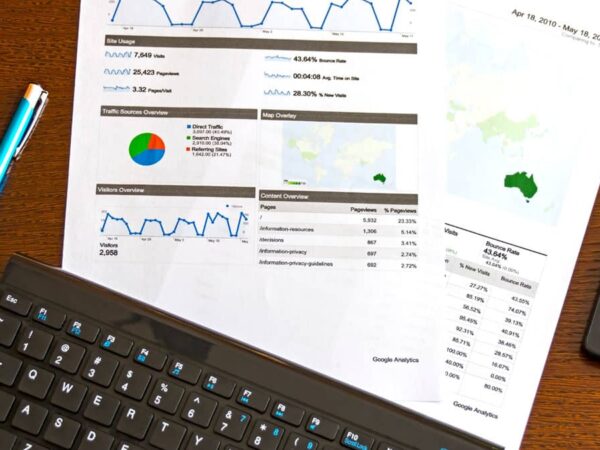How to Choose a Bank for Your Small Business?
Banks differ in the products and services they offer. Here are main things to consider when finding a bank to meet your business needs.

Choosing a bank for your personal banking is hard enough – finding a bank for your business needs can feel even more overwhelming. There are so many choices, where do you even start?
Banks differ in the financial products and services they offer to small businesses and start-ups. Fees, lending options, and perks may vary widely. These are 10 things you should consider when shopping for a bank to meet your business needs.
1. Understand your business banking needs
Before diving into comparisons, it’s crucial to understand the specific banking needs of your business. Different business structures and growth plans require different financial tools and support.
- Business Structure: Whether you’re a sole proprietor, LLC, or corporation, your legal structure will affect what kind of accounts you’re eligible for—and what documents are required.
- Transaction Volume: If your business processes many transactions per month, choose an account with high or unlimited transaction allowances to avoid excess fees.
- Cash Flow Requirements: Evaluate your cash flow habits—frequent deposits, wire transfers, or large withdrawals? Choose a bank that aligns with how money moves in and out of your business.
- Growth Projections: Anticipating expansion? Pick a bank that can scale with your business, offering lines of credit, merchant services, and lending solutions for different stages of growth.
By mapping out these details upfront, you’ll have a clear framework for evaluating which banks truly support your business model and industry needs.
2. The size of your bank matters
When it comes to banking, size matters. However, that doesn’t mean that bigger is always better. You’ll need to evaluate your business’s needs and your comfort level to decide whether you’d rather work with a small community bank or a large national bank. Big banks have lots of branches, lots of different offerings, and lots of resources. They can give you a wide variety of credit options and may be able to offer you perks for opening accounts or lines of credit.
Smaller community banks may be more attuned to local market conditions and more willing to work with you based on your character and overall profile, rather than the hard numbers of a credit score – in other words, it might be easier to secure a loan or line of credit. Smaller banks may also be more willing to give you a better rate or a lower fee in order to win your business.
Whether you need the resources and variety of a large bank or the local expertise of a small bank, keep in mind that you’re going to need a personal relationship with your banker. You’ll be working with that person a lot and having a good relationship can be a big help if you run into trouble with fees or missed payments. So, set up meetings with bankers at both small and large banks. Talk to them and see what they can offer you.
3. Check your business credit score
Larger banks can take their pick of what businesses they want to work with. That means it may be hard to get into a large bank if your business is very new or has a low credit score. Small, local banks may be more forgiving of new local businesses and may have less stringent credit requirements for opening accounts and lines of credit.
Check out the credit requirements for the banks you’re considering to see if you’ll be able to get what you need out of your business accounts.
Know Your Business Credit Options
Many small business owners aren’t aware of the range of credit products available to them. Beyond a basic business credit card, look into:
- Business Lines of Credit: Flexible funds you can draw from when needed.
- Working Capital Loans: For covering day-to-day expenses during slow seasons.
- Merchant Cash Advances: Ideal for businesses with high credit card sales.
- Equipment Financing: Helps spread the cost of big-ticket items.
Knowing what’s out there ensures you’re choosing a bank that aligns with your financing goals—not just your checking account needs.
4. Approach Internet banks with caution
Online banks are becoming more common but should be approached with some caution and after thorough research. Part of banking is building a business relationship and building your business credit, both of which may be easier offline than on. There are times when you physically need to attend to your banking needs with a banker. An Internet-only bank precludes that one-on-one attention and personal service.
If you’re in a very early stage and only need very simple business services (like opening a business checking account), an online bank may be able to meet that need. However, you may want to consider the cost and difficulty of switching to a more traditional bank if you later need services that your online bank can’t provide.
5. Business Bank Location, Location, Location
Where is the bank located? Consider the bank’s proximity to your office, home, and areas where you travel. Do you need the ability to make deposits on a daily or weekly basis? Do you often withdraw cash for your business? Do you ever need bank-issued certified checks? Do you travel for work and need to be able to use national ATMs without fees?
Consider the nature of your business and how often you will need to frequent the bank when making your decision. If you need to physically enter the bank more than weekly, then make your choice accordingly. Likewise, if you travel nationally, you’ll want a bank you can count on from coast to coast.
6. Evaluate Banks Strategically
Not all banks are created equal. It’s important to go beyond marketing claims and take a deep dive into the operational details of each potential banking partner.
- Fee Transparency: Compare business checking account fees, overdraft charges, minimum balance penalties, and ATM surcharges. Look for banks with straightforward fee structures and possible fee waivers for small businesses.
- Customer Service Access: Choose a bank known for reliable, human customer support. Round-the-clock service—especially for digital banking issues—can make a big difference.
- Account Features & Tools: Does the bank offer online bill pay, remote check deposit, or robust reporting tools? These features can save time and reduce admin overhead.
- FDIC Insurance: Always ensure that the bank is FDIC-insured and check the coverage limits for your accounts.
- Reputation and Reviews: Research online ratings and reviews for insight into customer satisfaction, responsiveness, and issue resolution.
This kind of apples-to-apples comparison helps you find a bank that’s not only affordable but a good operational fit for your business.
7. What are your digital banking needs?
How often do you use technology for your banking needs? Do you automate your accounts online? Do you want to be able to make deposits with only your cell phone? If your work requires travel or if your company is tech-centric, you may want to have more digital options when dealing with your bank.
If that’s important to you, then look for a bank that uses the latest tech and has the platforms to support your particular needs.
8. Security and Fraud Protection Features
In today’s cyber-threat environment, digital banking security is a must. Ask potential banks:
- Do they offer two-factor authentication and real-time fraud alerts?
- Can you set custom transaction limits?
- Do they provide business ID theft protection?
Robust security options not only protect your funds—they demonstrate a bank’s commitment to safeguarding your business.
9. Compare Merchant Services and Payment Processing
If you take credit cards, you’ll need a reliable, cost-effective payment processor. Some banks bundle merchant services into business accounts, while others offer preferred partnerships.
- Look at credit card transaction fees
- Ask about POS integrations
- Review dispute resolution times
Banks with in-house merchant services can streamline your operations and reduce costs.
10. Are you working with the SBA?
If you are applying for an SBA loan, you may want to consider developing a relationship with an SBA lender. The SBA lists lending-friendly banks for small businesses and directs business owners toward preferred lenders in their respective states. Talk to your loan officer at the SBA about your options for banking and whether you should limit your bank search based on your potential SBA loan.
11. What banking services do you need?
Certain services should be expected from all banks. At a minimum, you should look for your bank to provide the following business products:
Basic Business Account Services:
- Checking account
- Savings account
- Credit card/debit card
- Checks and a checkbook
- Deposit-only card
- Online business banking
- Employee checking accounts
Find out the details on each of these business banking products, as well as any fees or requirements. Checking account fees are still common, but some banks offer free business checking accounts with no minimum balance as an enticement. Fees and requirements (minimum balance, checking fees, monthly required use of debit card) vary widely, so take time to comparison shop and look at the details of each bank’s offerings.
If you have other business banking needs, such as opening a line of credit, ask about it upfront. You don’t want to sign up for business checking and find out that they can’t give you a loan when you need it.
12. Where are the perks?
Seeking to court customers, some banks offer gift cards to new customers. Some banks offer a cash bonus for opening a new account. Others may offer payroll services, hotel discounts, lowered insurance rates, and even tax prep help.
You shouldn’t make this important decision based on good “perks,” but asking about what’s available to new business accounts may score you an added bonus or some worthy discounts. It can also help break the tie if you’re having a hard time deciding between 2 banks.
13. What kind of business banking support do you need?
Some banks keep staff on hand to help you manage and grow your business. Such specialists may be valuable as you grow your business. They may be able to advise on how to run your accounts, fund growth, and expand your business. They may also be helpful with tax or payroll issues.
When choosing your account, think about how much support you need not just today, but going forward as your business grows and changes. If this resource is something you think you’d use as your business evolves, then consider its availability when choosing a bank. You can always find an outside specialist, but an internal one will already be familiar with your business, your finances, and you personally.
14. Trust your gut
Ultimately, you’re building a relationship. Does the bank feel like a good fit for your business and its needs? You want to feel comfortable with the bank and trust the institution. It’s worth finding the bank that truly connects with you and your business. If it doesn’t feel right, or you’re compromising on important needs, keep looking.
The Bottom Line – Choosing a bank for your small business
If you’re running a business, you’re going to need a bank. Think carefully about what you need and about what each bank can offer you. Also, remember that the choice of a bank isn’t permanent—you can change it up if you’re not happy or if you outgrow the bank you started at. Having a good relationship with your bank can make running your business a lot easier, so don’t neglect it!
Business Banking Checklist
To simplify your search, here’s a quick-reference list to evaluate banks:
|
Feature |
Considerations |
|
Monthly Fees |
Waivers available? Minimum balances required? |
|
Transaction Limits |
Are they high enough for your monthly volume? |
|
Lending Options |
What loans or credit products are available to you? |
|
Tech Features |
Mobile app? Online check deposit? Expense tracking? |
|
Merchant Services |
Credit card processing? POS compatibility? |
|
Personalized Support |
Access to dedicated small business bankers? |
|
SBA Relationship |
Is the bank an SBA-preferred lender? |
|
Inclusivity |
Are there programs for minority or underserved groups? |
|
Reputation |
Online reviews, BBB rating, community presence |
Learn more about business banking and finances
When it comes to your finances, you want clear guidance and easy-to-implement tools based on your unique needs. Visit Learn with AOF to get started strengthening your financial management and meeting your goals.
Experience a different kind of financial education. Learn with AOF has flexible, on-demand courses developed by small business owners, for small business owners. Learn on your schedule, with no time commitment or limit. Save your progress any time to fit courses into your busy schedule.









